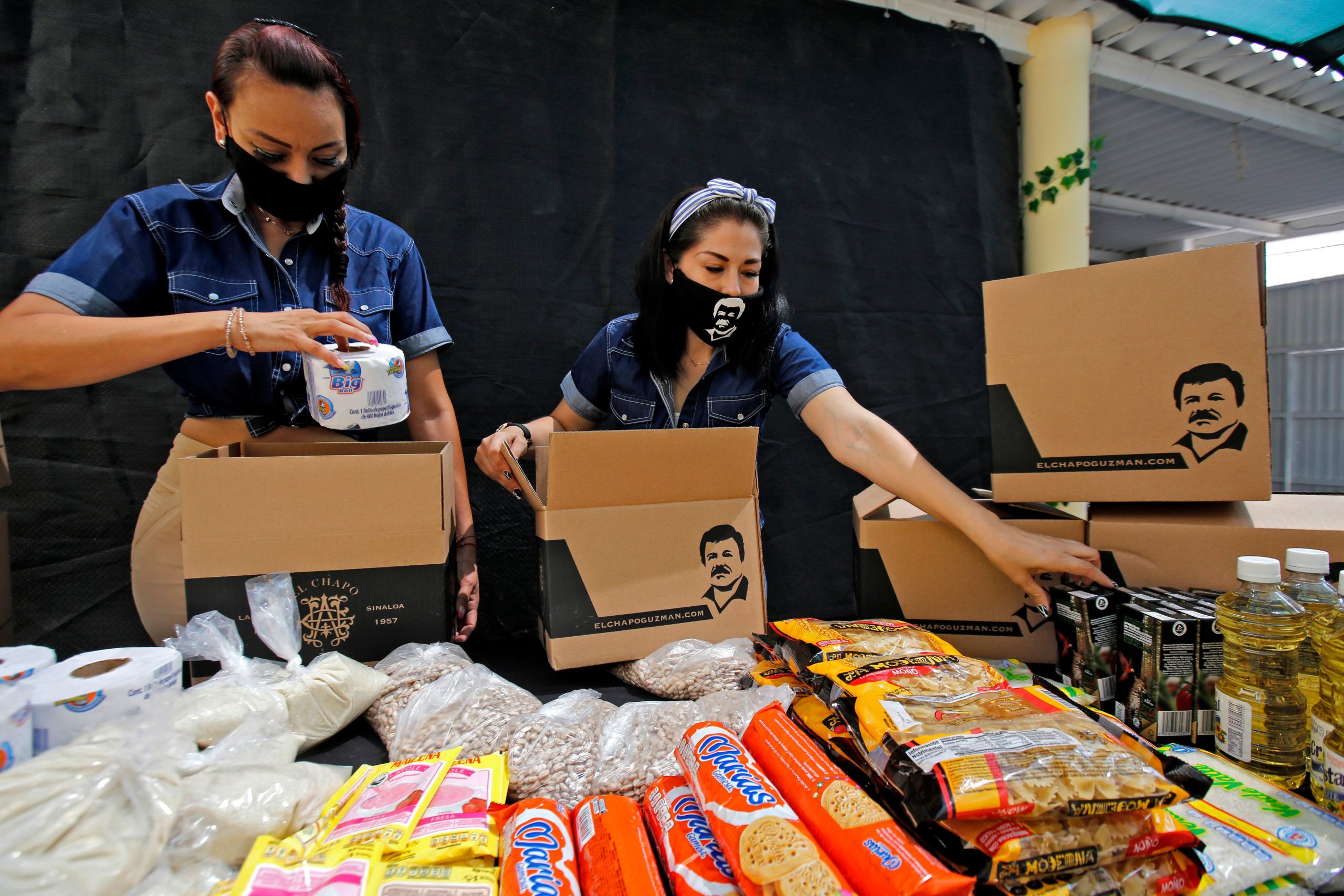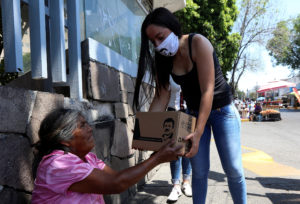
Mexican cartels deliver care packages to citizens amid pandemic
Daughter of imprisoned drug lord El Chapo promotes her father’s image on relief boxes

From mobster Al Capone’s Chicago soup kitchen that served three meals a day during the Great Depression to Colombian cocaine kingpin Pablo Escobar’s donations to soccer teams and housing projects in the 1980s, organized crime figures have often resorted to acts of charity to polish their tarnished public personas.
Now in Mexico, where the pandemic wrought by COVID-19 has killed about 700 people and damaged the economy, some of the country’s murderous drug cartels are making a show of distributing packages to the poor containing essentials such as food, cooking oil, sugar, protective masks, hand sanitizer, toilet paper and shampoo.
Representatives of the Jalisco New Generation, Gulf, Los Durango and Sinaloa cartels have passed out care boxes to Mexican residents to cope with the effects of the coronavirus on public health, businesses and laid-off or furloughed employees.
In images posted on social media, members of the cartels, some carrying firearms, dressed in military clothes or wearing hoods, are shown distributing packages of food and sanitary supplies to the public.
Jalisco New Generation, known as the CJNG, printed the cartel’s logo and the message, “From your friends, CJNG, COVID-19 contingency support” on the boxes. The Gulf Cartel, based in the eastern Tamaulipas state, printed “Señor 46, Vaquero” on boxes, apparently a reference to a leader of the crime group, Evaristo “El Señor 46” Cruz.
Representing the Sinaloa cartel, at least from a branding standpoint, is Alejandrina, the daughter of imprisoned former Sinaloa cartel boss Joaquin “El Chapo” Guzman. On a video posted on Facebook, she loaded provisions into boxes bearing her company’s brand name “El Chapo 701,” with a stenciled drawing of her infamous father’s smiling face as its logo.
The “701” refers to El Chapo’s purported ranking on a 2009 list of the world’s billionaires published by Fortune magazine.

Workers passed out the El Chapo-branded boxes to people on the street in Mexico’s second largest city, Guadalajara.
Alejandrina’s effort also is aimed at enhancing the El Chapo 701 brand, which also adorns clothing items and booze. While placing items into the cardboard boxes during the Facebook video, Alejandrina wore a protective mask with the El Chapo 701 logo.
Guzman, convicted in federal court in New York in 2019 of a host of felony charges relating to his 30-year drug trafficking ring from Mexico to the United States, is serving a life sentence at a “super max” high-security prison in Florence, Colorado.
The cartels’ public relations campaigns amid the coronavirus scourge fell on deaf ears with Mexico President Andrés Manuel López Obrador. The president has weathered criticism that his government has not done enough to assist Mexican businesses and the unemployed during the pandemic.
In a message published by the Associated Press, the president rebuked the cartels, saying that issuing care packages is unhelpful when compared with the gang violence that has ravaged the country and its families for decades.
“What helps is them stopping their bad deeds,” he said.
“I don’t want to hear them saying, ‘we are handing out aid packages,’” the president said. “No, better that they lay off, and think of their families, and themselves, those that are involved in these activities and who are listening to me now or watching me.”
Lopez Obrador has faced skepticism for his softer approach than previous presidents to dealing with the cartels, in favor of focusing policy and government funding on tackling the social ills that he believes promote crime.
Mexico’s murder rate, traced to inter-cartel battles, has been among the world’s highest for many years. The number of homicides totaled a record 34,582 in 2019, the president’s first year in office.
Feedback or questions? Email blog@themobmuseum.org





